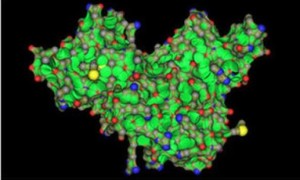Results of a post-marketing study of Biocon and Mylan’s trastuzumab biosimilar Zedora (MYL-1401O) compared to Herceptin (trastuzumab) has shown equivalent safety data to the originator biological in breast and gastric cancer, according to the authors [1].
Trastuzumab is a monoclonal antibody that interferes with the human epidermal growth factor receptor 2 (HER2)/neu receptor. In some cancers, notably certain types of breast cancer, HER2 is overexpressed, and causes cancer cells to reproduce uncontrollably. Trastuzumab is therefore used to treat certain breast cancers.
Biocon and Mylan’s trastuzumab follow-on biological was approved by the Brazilian regulatory agency (Agência Nacional de Vigilância Sanitária, ANVISA) in December 2017, through their Brazilian partner Libbs Farmaceutica (Libbs) [2].
The prospective observational study was based on data from a manufacturer’s patient support programme. Patient diagnosed with initial or advanced HER2+ breast cancer (BC) and HER2+ gastric cancer (GC) who received a prescription for the trastuzumab follow-on biological (MYL-1401O) were invited to participate. They were followed by periodical phone calls after each infusion and up to three months after the last infusion of trastuzumab. Treatment related data and adverse events (AEs) were collected.
A total of 21 female patients with HER2+ BC receiving trastuzumab (MYL-14010) were enrolled in the programme between May 2018 and January 2019. Of these patients, 16 (76,2%) reported 101 AEs (all-causality): 94 (93,1%) non-serious (73 expected / 21 unexpected) and 7 (6,9%) serious (5 expected / 2 unexpected). Considering all unexpected AEs causality assessment was unlikely in 47,8% AEs. The most frequently reported AEs according to SOC (system organ classification) were general disorders and administration site conditions (18,8%), nervous system disorders (14,9%) and gastrointestinal disorders (14,9%). The most reported symptoms were nausea, asthenia, infusion reactions, paresthesias and pain in the body.
The authors concluded that the ‘safety data for biosimilar trastuzumab (MYL-1401O) is consistent with original trastuzumab in female patients with HER2+ BC’. In addition, they found that ‘most of the reported AEs were non-serious (93,1%) and expected (77,2%)’ and that ‘no new safety signals were detected’.
These results were presented at the 2019 American Society of Clinical Oncology Annual Meeting, which took place on 31 May to 4 June 2019 in Chicago, Illinois, USA.
Conflict of interest
The authors of the research paper [1] declared that there was no conflict of interest.
Editor’s comment
It should be noted that data of the study presented in this article was published as an abstract and presented at a conference. These data and conclusions should be considered as preliminary until published in a peer-reviewed journal.
It should be noted that follow-on biologicals approved in Brazil might not have been authorized following as strict a regulatory process as is required for approval of biosimilars in the European Union. The EMA (European Medicines Agency) regulatory requirements ensure the same high standards of quality, safety and efficacy for biosimilars as for originator biologicals, and also include a rigorous comparability exercise with the reference product.
Related article
Biosimilars of trastuzumab
References
1. da Silva AM, Capeleti Dib GV, Fernandes Saraiva EL, et al. Active postmarketing surveillance: results from a manufacturer's patient support program for patients under treatment with the first biosimilar trastuzumab (MYL-1401O) approved in Brazil. American Society of Clinical Oncology Annual Meeting; 2019 May 31–June 4; Chicago, Illinois, USA.
2. GaBI Online - Generics and Biosimilars Initiative. Trastuzumab biosimilars receive EMA and ANVISA approval [www.gabionline.net]. Mol, Belgium: Pro Pharma Communications International; [cited 2019 Jul 19]. Available from: www.gabionline.net/Biosimilars/News/Trastuzumab-biosimilars-receive-EMA-and-ANVISA-approval
Permission granted to reproduce for personal and non-commercial use only. All other reproduction, copy or reprinting of all or part of any ‘Content’ found on this website is strictly prohibited without the prior consent of the publisher. Contact the publisher to obtain permission before redistributing.
Copyright – Unless otherwise stated all contents of this website are © 2019 Pro Pharma Communications International. All Rights Reserved.








 0
0











Post your comment